Frequently Asked Questions
Legal issues can be intimidating and overwhelming. Sometimes it is hard to know where to start or which questions to ask. The questions and answers below are designed to provide some basic information so that you can get your footing and take steps to advocate for yourself and your loved ones. This basic information should not be construed as legal advice for any specific situations and Blackwelder Law, LLC encourages you to contact our office to discuss the specifics of your legal issue. Call 910-489-2178. We look forward to hearing from you.
What Is General Sessions Court?
South Carolina state courts have special names for their criminal and civil courts. General Sessions court is the criminal division of South Carolina state courts held in each county. Cases heard in criminal court involve felony and misdemeanor charges that carry minimum penalties of more than 30 days and/or a $500 fine and maximum penalties of death.
What Are Magistrate Courts And Municipal Courts?
Magistrate courts are county courts that handle criminal and civil cases that are not heard in General Sessions (criminal) or Common Pleas (civil) court. Municipal courts are city courts that do the same. For the purposes of criminal charges, magistrate and municipal courts handle misdemeanor charges with penalties of 30 days or less and/or a fine of up to $500. For civil cases, magistrate courts handle civil cases with claims for damages that do not exceed $7,500 in value. (Civil cases with claims for damages that exceed $7,500 are filed/heard in Common Pleas court.)
What Is The Difference Between A Felony And A Misdemeanor?
Both are types of crimes, but felonies are considered more serious and carry higher penalties than misdemeanor charges.
How Often And When Do I Go To Court After I Am arrested?
After an individual is arrested, he or she typically will encounter the court only a few times during the course of the case. Instead, most of the case progress happens outside of the courtroom. Nevertheless, the defendant should plan to go to court for the following: bond hearing, preliminary hearing, initial appearance (roll call), docket/second appearance, plea, or trial.
What Determines Whether I Get Bond?
Bond hearings are not meant to determine whether an individual is guilty or not guilty. Rather, they are used to ensure that individuals charged with crimes (defendants) will appear in court as they have been instructed. During a bond hearing, a judge considers two factors — (1) whether an individual is a flight risk and (2) whether an individual is a danger to the community.
What Is A Preliminary Hearing?
Individuals charged with felonies (and some select misdemeanors) have a right to request a preliminary hearing in South Carolina. The purpose of these hearings is to establish probable cause for the charges against the defendant to see if the case will continue to be pursued by the investigating agency. It is VERY rare for a case to be dismissed as a result of a preliminary hearing because it is not very difficult to establish probable cause (a very low standard of proof that is typically satisfied by a suspicion of guilt). Preliminary hearings occur soon after an arrest, as they are requested by the defendant within a few days and scheduled soon thereafter. Even if a case was dismissed at a preliminary hearing, the charges may be renewed after a grand jury returns an indictment authorizing the continued pursuit of the investigation. This type of hearing is not always necessary, so it is best to discuss with an attorney the advantages and disadvantages of moving forward with a preliminary hearing request.
What Is Happening With My Case When I Am Not Going To Court?
A majority of the meaningful work on your criminal case occurs outside of a courtroom. After an individual has been to a bond hearing (and in some cases a preliminary hearing), your attorney requests and receives the evidence the state plans to use to convict you of the crime charged. It is your attorney’s job to review and discuss that evidence with you. After reviewing the state’s evidence and the information you provide regarding your defense, you and your attorney should make decisions about how to best resolve your case.
What Is A “Disposition?”
The term “disposition” in a criminal case refers to the final status or outcome of the case. The dispositions of state cases are recorded by the clerk’s office and kept on file for review.
Is A Traffic Citation A Misdemeanor?
Yes, a traffic citation in South Carolina is classified as a misdemeanor.
Can I Get A Traffic Citation Expunged From My Record?
No. In South Carolina traffic citations cannot be expunged.
